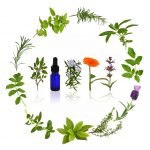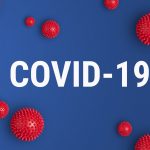Seventh-Day Adventists Have Better Health
Node Smith, ND
A recent study found lower rates of premature death and cancer in Seventh-day Adventists, a Protestant denomination long known for health promotion, compared with individuals in the general U.S. population. Published early online in CANCER, a peer-reviewed journal of the American Cancer Society, the study also found similar results when limiting the analysis to Black Adventists and the Black general population.
Lower rates of premature death and cancer found in Seventh-day Adventists
Health behaviors promoted by the Seventh-day Adventist Church include not smoking, eating a plant-based diet, regular exercise, and maintaining normal body weight. Previous research suggests that Seventh-day Adventists have lower risks of many cancers, heart disease, and diabetes, and in California, live longer than individuals in the general population. Results vary by cancer type, however, with little published data for Black individuals.
To provide additional insights, Gary Fraser, PhD, of Loma Linda University in Loma Linda, California, and his colleagues compared death rates and cancer incidence between a national Seventh-day Adventist population and a representative sample of the U.S. population. Specifically, the researchers analyzed data from the nationally inclusive Adventist Health Study-2 and a U.S. Census population, and they adjusted for differences in education, location of residence, and past smoking habits, so that these factors would not explain any of the results.
The team’s findings
The team found significantly lower rates of death from any cause, as well as a lower incidence of all cancers combined in the Adventist population (by 33 percent and 30 percent, respectively), and lower incidence rates specifically for breast, colorectal, rectal, and lung cancer (by 30 percent, 16 percent, 50 percent, and 30 percent, respectively). Death rates and incidence of all cancers combined were also significantly lower among Black Adventist individuals compared with Black individuals in the U.S. Census population (by 36 percent and 22 percent, respectively).
“This is the first confirmation of previous reports, now using national populations. Further, we were able to control for differences in tobacco use by excluding any currently smoking non-Adventists, and adjusting for past smoking and time since quitting in previous smokers. In addition, this is the first report that includes a comparison among Black individuals alone.” said Gary Fraser, PhD, Loma Linda University in Loma Linda, California.
Findings do not clearly identify the causes of the health benefits experienced by Adventists
Dr. Fraser noted that the findings do not clearly identify the causes of the health benefits experienced by Adventists, but other studies have provided evidence that the plant-based dietary habits chosen by many Adventists are one important factor. “Adventist vegetarians have less overweight, diabetes, hypertension, elevated blood cholesterol, coronary heart disease, and several cancers compared with Adventist non-vegetarians, who themselves are lower than usual consumers of animal foods,” he said. “Thus, the findings in this report comparing all Adventists–vegetarians and non-vegetarians–to average Americans are largely as expected, and strongly suggest that these health advantages may be available to all Americans who choose similar diets, in addition of course to other well-known prudent lifestyle choices such as regular physical activity, avoiding smoking, and care with body weight.”
Source:
1. Fraser, G.E., et al. (2019) Lower rates of cancer and all‐cause mortality in an Adventist cohort compared with a US Census population. Cancer. doi.org/10.1002/cncr.32571.

Node Smith, ND, is a naturopathic physician in Humboldt, Saskatchewan and associate editor and continuing education director for NDNR. His mission is serving relationships that support the process of transformation, and that ultimately lead to healthier people, businesses and communities. His primary therapeutic tools include counselling, homeopathy, diet and the use of cold water combined with exercise. Node considers health to be a reflection of the relationships a person or a business has with themselves, with God and with those around them. In order to cure disease and to heal, these relationships must be specifically considered. Node has worked intimately with many groups and organizations within the naturopathic profession, and helped found the non-profit, Association for Naturopathic Revitalization (ANR), which works to promote and facilitate experiential education in vitalism.










